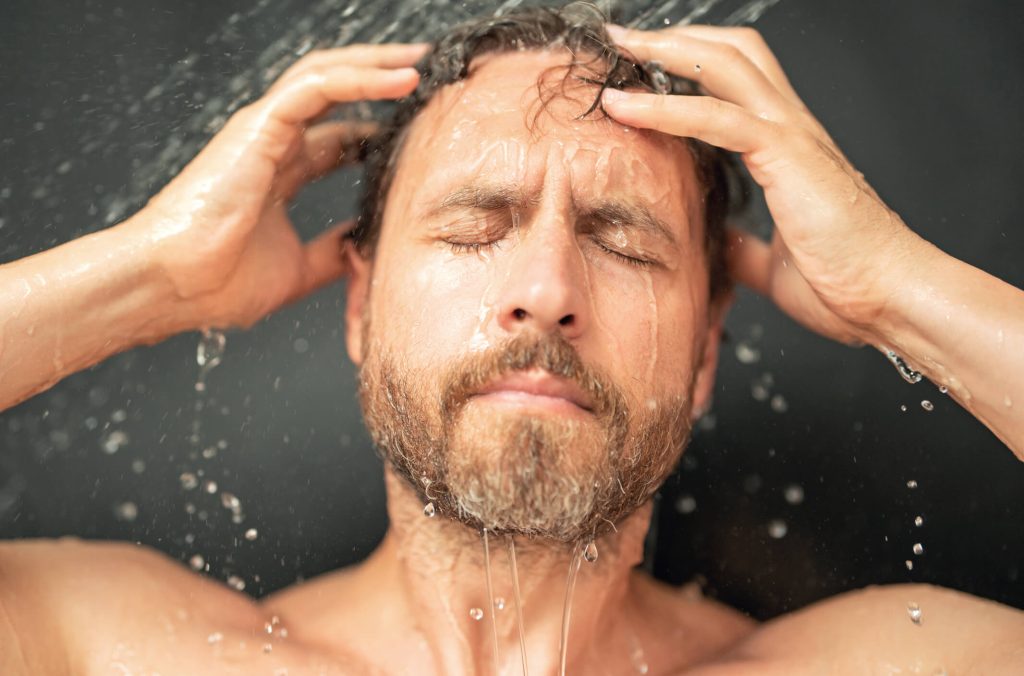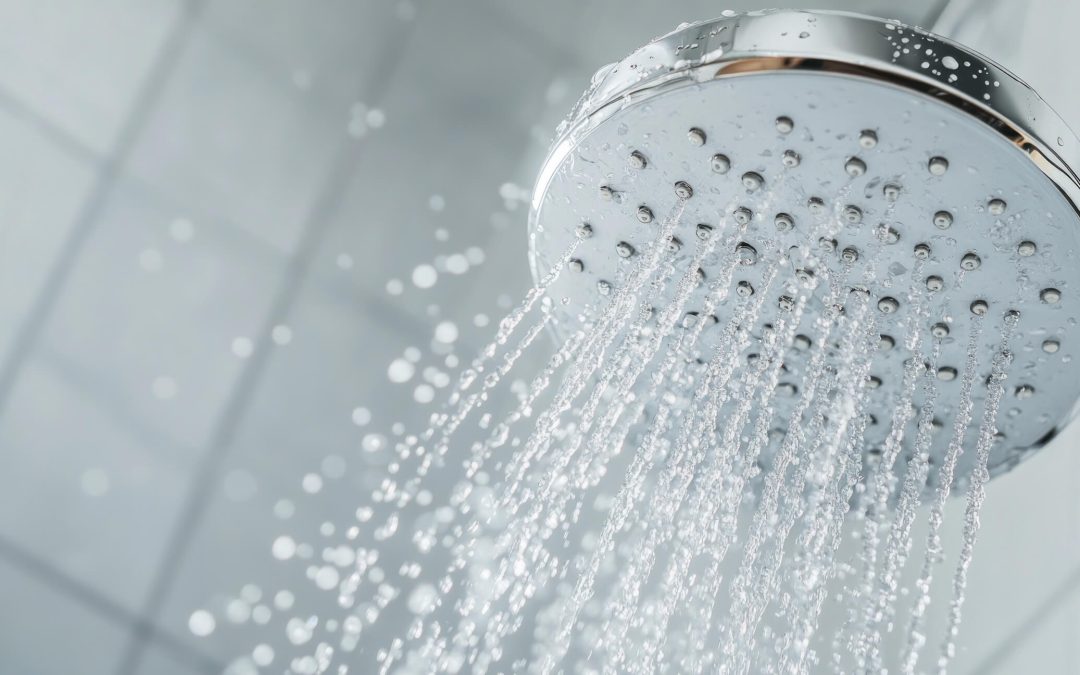Hard water is a common issue affecting many’s daily lives, particularly in areas like Orange County, where water hardness is a well-known problem. While hard water is often associated with skin dryness and soap scum buildup, it may also have a significant impact on hair health. The minerals in hard water can interact with the conditioner, leaving residue on the hair. Shower practices and the type of shower head used can influence how much damage occurs. Additionally, the oil levels in the scalp and the amount of exposure to hard water can vary among people. If you’re considering Neograft hair restoration in Orange County, understanding the effects of hard water on your hair is essential for addressing hair loss concerns effectively.
What Is Hard Water?
Hard water refers to water that contains high levels of minerals such as calcium and magnesium. These minerals are picked up as water passes through soil and rocks, making the water “hard.” Although hard water is not harmful, its effects on hair, skin, and household appliances can be undesirable. The mineral content in hard water interacts with shampoos and conditioners, reducing their effectiveness and leaving behind a residue on the scalp and hair strands. Among the many things affected are hairs, as hard water impacts the cuticles and locks, changing their texture and appearance.
The benefits of addressing hard water include improved hair health and reduced residue. Hard water’s effect extends beyond appearance; it can influence the body’s hydration and the need for specialized hair products. News surrounding hair types and treatments often highlights the role of hard water, and understanding its sources and the changes it causes over time is vital. Ingredients in shampoos, conditioners, and other products may help mitigate these effects, while color-treated hairs may see more pronounced issues. Apps and resources from a team of experts can provide insights into the types of treatments and facts about hard water’s impact from the inside out.
How Hard Water Affects Your Hair
Hard water can negatively impact the health and appearance of your hair in several ways:
- Mineral Buildup: Calcium and magnesium deposits can accumulate on your scalp and hair, creating a layer of buildup that is difficult to wash away. This mineral buildup leads to hair feeling heavy and looking dull. The process involves interactions with bicarbonate salts and other chemicals in the water, contributing to the buildup.
- Dryness and Brittleness: Hard water strips away the natural moisture from your hair and scalp, leaving it dry and brittle. Over time, this dryness weakens the hair strands, increasing the likelihood of breakage. The impact on the body and roots of the hair underscores the need for protective action.
- Scalp Irritation: The buildup of minerals can irritate the scalp, causing itchiness, dandruff, and even eczema in some cases. Prolonged exposure to hard water can exacerbate these issues, and seeking a salon treatment or using a specialized app for solutions can help address these concerns.
- Split Ends and Hair Breakage: Mineral deposits can weaken the hair shaft, leading to split ends and increased hair breakage. Targeted treatments or consulting an MD may provide effective interventions.
Tangles and Frizz: Hard water disrupts the hair’s cuticle layer, causing the strands to become rough and prone to tangling and frizz. Understanding the water source and opting for filtration methods can be crucial to managing these effects. Fact-based approaches and holistic care routines can make all the difference in maintaining healthy hair.
Can Hard Water Cause Hair Loss?
The question of whether hard water directly causes hair loss is complex. Hard water does not typically lead to hair falling out at the root. However, its effects on hair and scalp health can contribute to hair thinning and breakage, which may give the appearance of hair loss. The dryness, brittleness, and lack of elasticity caused by mineral buildup can make hair more prone to damage. Over time, this damage can exacerbate hair thinning, particularly for individuals with underlying scalp or hair issues.
Moreover, hard water can interfere with the effectiveness of hair care products. Shampoos and conditioners may struggle to lather properly or rinse out thoroughly, leaving behind a residue that worsens buildup and exacerbates hair problems. Water buildup often results in dullness, affecting the vibrancy of hair color and making hair more difficult to manage. Using a comb can become challenging as frizziness increases, particularly for those dealing with high mineral concentrations in their water.
Addressing water problems with water softeners or specialized scalp treatments can help mitigate these issues. Keeping the base of your hair and scalp in mind, opting for solutions that reduce buildup, and considering something as simple as changing your hair care routine can improve the overall health of your hair.
Common Signs of Hard Water Damage
How do you know if hard water is affecting your hair? Here are some signs to watch for:
- Lack of Shine: Hair appears dull and lacks natural luster due to mineral deposits that coat the strands.
- Increased Hair Breakage: You may notice more breakage when brushing or washing your hair.
- Dry, Itchy Scalp: Mineral buildup can irritate the scalp, leading to dryness and itchiness.
- Tangles and Frizz: Hair becomes more complicated to manage, with tangles and frizz becoming more prominent.
- Split Ends: The weakened hair shaft results in more frequent split ends.
- Dandruff: Hard water can exacerbate dandruff by drying out the scalp and promoting flakiness.
- Product Ineffectiveness: Your shampoos and conditioners may not work as well as they used to, leaving your hair feeling unclean or greasy despite washing.

Understand the effects of hard water on hair with Neograft Hair Restoration Orange County in Newport Beach, California.
Scientific Insights into Hard Water and Hair Health
Scientific studies have explored the relationship between hard water and hair health. Research suggests prolonged exposure to hard water may weaken hair fibers, reducing their thickness and elasticity. A study published in the International Journal of Trichology found that hard water significantly reduced hair strength compared to distilled water. This weakening of the hair shaft can make strands more vulnerable to damage and breakage. For scalp treatment, users may benefit from products designed to counteract the effects of hard water.
How to Protect Your Hair from Hard Water
If you live in an area with hard water, there are several steps you can take to minimize its effects on your hair:
- Use a Shower Filter: Installing a shower filter is one of the easiest ways to reduce the mineral content in your water. Shower filters are designed to remove calcium, magnesium, and other impurities contributing to hard water damage.
- Incorporate a Water Softener System: A whole-house water softener system can address hard water at its source, preventing mineral buildup in your pipes, appliances, and water supply.
- Switch to Clarifying Shampoos: A clarifying shampoo can help remove mineral deposits and product buildup from your scalp and hair. Use it once a week to keep your hair clean and free from residue.
- Try Apple Cider Vinegar Rinses: Apple cider vinegar is a natural remedy that can help dissolve mineral buildup and restore the pH balance of your scalp. Mix one part vinegar with two parts water and use it as a final rinse after shampooing.
- Deep Condition Regularly: A deep conditioning treatment or hair mask can replenish moisture and strengthen your hair, counteracting the drying effects of hard water.
- Protective Hairstyles: Wearing protective hairstyles can reduce the exposure of your hair to harsh water and other environmental factors.
- Consult a Professional: If you’re experiencing severe hair loss or scalp irritation, consult a dermatologist or trichologist for advice tailored to your needs.
How Neograft Hair Restoration Can Help
For individuals experiencing significant hair thinning or loss, Neograft Hair Restoration offers a cutting-edge solution. This minimally invasive procedure involves transplanting healthy hair follicles from one part of the scalp to areas affected by thinning or balding. The results are natural-looking, permanent, and require minimal downtime.
In areas like Orange County, where hard water is prevalent, Neograft hair restoration can help restore hair density and confidence. By addressing the underlying causes of hair loss especially for men and offering advanced treatment options, Neograft provides a path to healthier, fuller hair. Contact us to learn more about how Neograft hair restoration in Orange County can transform your hair and your life.
Expert Advice on Hair Health
Experts agree that maintaining healthy hair requires a holistic approach. In addition to protecting your hair from hard water, consider these tips:
- Nutrient-Rich Diet: A diet rich in vitamins and minerals supports hair growth and scalp health. Nutrients like biotin, zinc, and iron are beneficial for hair strength.
- Hydration: Drinking water helps maintain overall hair and scalp health by preventing dryness.
- Proper Hair Care Routine: Use gentle, sulfate-free shampoos and conditioners to minimize damage and maintain moisture.
- Regular Trims: Trimming split ends regularly prevent them from traveling up the hair shaft and causing further damage.
- Avoid Overwashing: Washing your hair frequently can strip it of natural oils, leading to dryness and brittleness.
Hard Water and Your Home
The impact of hard water extends beyond hair health. Mineral buildup can clog pipes, reduce the efficiency of appliances, and leave stains on sinks and showers. By investing in water-softening solutions, you can improve your hair health, including reducing hair loss during showers, and the functionality and longevity of your household appliances.
Final Thoughts
While hard water is not the sole cause of hair loss, its effects on hair health can be significant. Understanding the connection between hard water and hair damage is the first step toward protecting your hair. By taking proactive measures such as installing shower filters, clarifying shampoos, and maintaining a healthy hair care routine, you can minimize the impact of hard water on your scalp and strands.
If hard water damage has already contributed to significant hair thinning or loss, Neograft hair restoration in Orange County offers a practical and natural-looking solution. This innovative procedure can help you regain confidence and achieve your desired healthy, full head of hair.
For personalized advice and treatment options, consult with hair care professionals or dermatologists specializing in hair health. Remember, your journey to healthier hair starts with understanding the challenges and exploring available solutions. Contact us today to take the first step toward revitalized hair and confidence.














Recent Comments